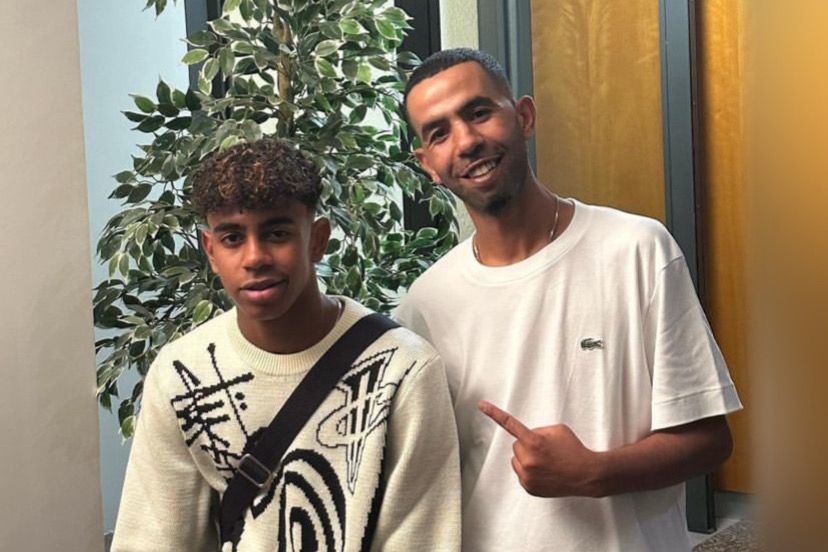Father of FC Barcelona's Lamine Yamal Appeals to Club President Over Racist Abuse

Spanish investigative journalism has uncovered that Lamine Yamal, a young star of FC Barcelona, is the target of a systematic campaign of racist abuse, making him the most insulted player on social media in Spain. This has prompted his father to reach out to club president Joan Laporta, "in tears," requesting intervention.
According to a shocking report by the newspaper "El País", 60% of the racist attacks on players in La Liga are directed at Yamal, who has been referred to as "the Black" and "the Moroccan" in over 20,000 posts.
In response to this wave of abuse, the report detailed emotional developments within Yamal's family, noting that "his father Munir Nasraoui cried and contacted Barcelona president Joan Laporta, urging him to intervene to stop the insults and the wave of racism directed at his son." Meanwhile, his mother, Sheila Ibana, called for "an immediate response from the club and its president."
While Yamal's close circle claims he is "not affected but tired of being the center of attention," the report highlighted that "his family is the one suffering the most," especially following a controversial comment by commentator Mono Burgos, who remarked, "If he doesn't succeed in football, he'll end up at a traffic light."
In response to this remark, Yamal stated, "He tried to compliment me, but he couldn't find the right words."
Yamal is not alone in facing such abuse; however, he significantly leads the list. The investigation revealed that Real Madrid's Vinícius Júnior, who is also frequently targeted by racism, received 29% of the attacks, placing him second after Yamal.
The report also noted that Yamal experienced his most severe day of racist abuse on September 22, during the Ballon d'Or ceremony, where he finished second to French player Ousmane Dembélé.
A number of global football stars have not been spared from these attacks, as racist insults have also targeted Kylian Mbappé, Alejandro Balde, Moroccan Ibrahim Díaz, and Iñaki Williams, indicating that this issue is widespread.
The "El País" investigation concludes by emphasizing the need to foster a culture of respect and prevent discrimination both inside and outside stadiums, stating that "the road to eradicating hate speech in football is still long."
